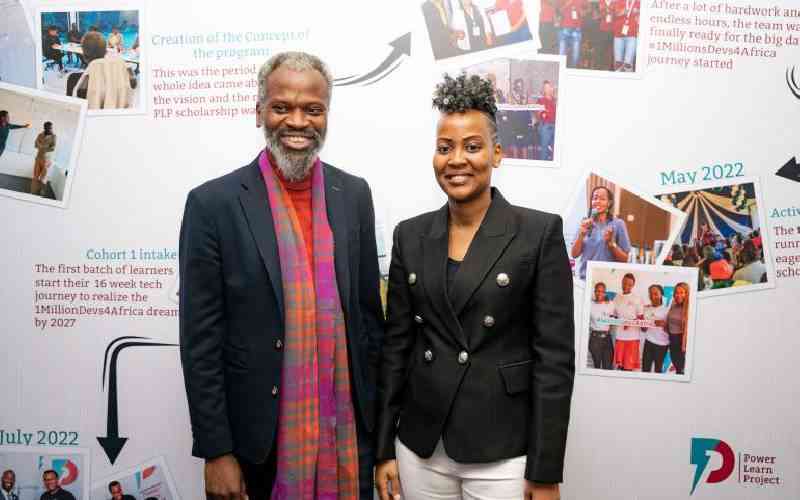×
The Standard e-Paper
Stay Informed, Even Offline

Power Learn Project Board of Chair John Kamara and Chief Growth Officer Mumbi Ndungu. [File, Standard]
Recently, a group of 1,000 students graduated in the tech field. All were students of Power Learn Project (PLP), an organisation whose goal is to train one million software developers in Africa by 2027.